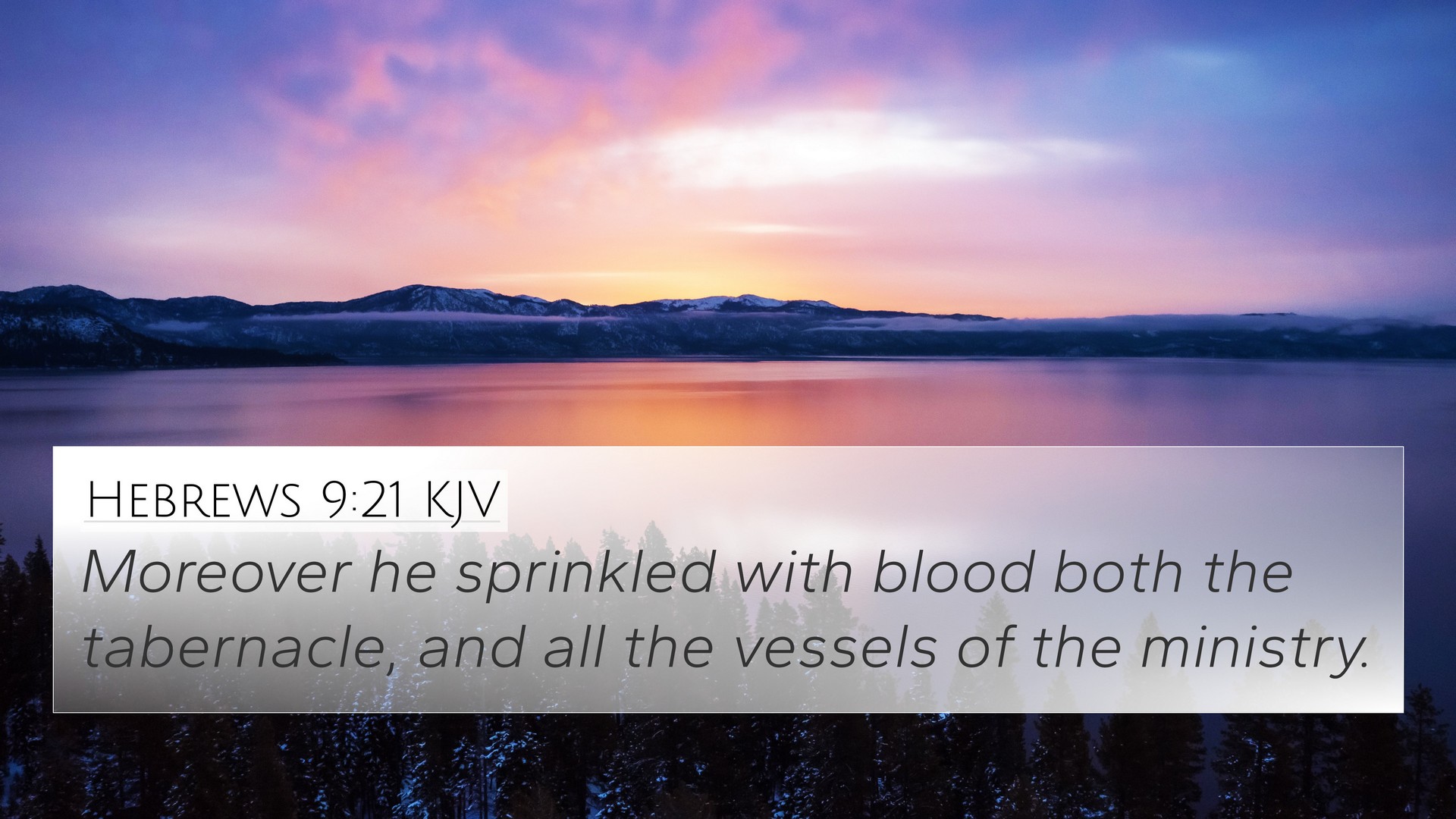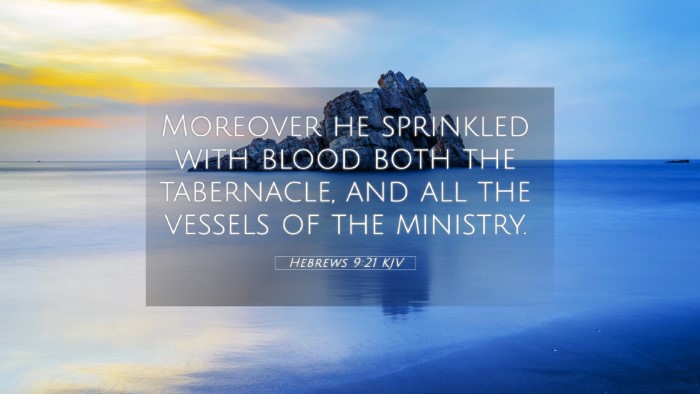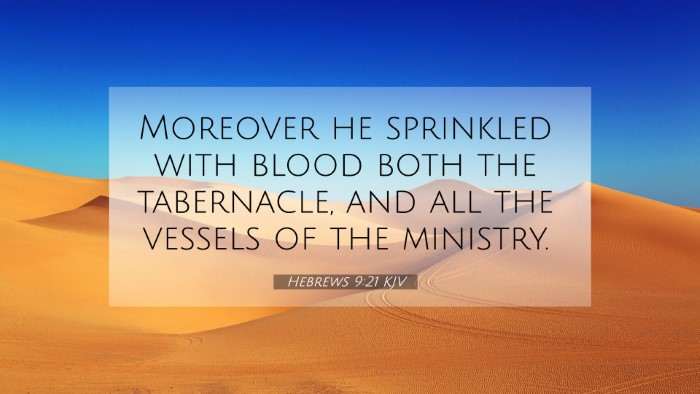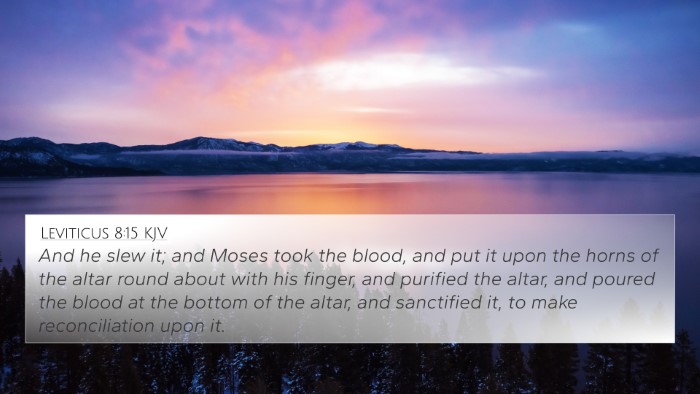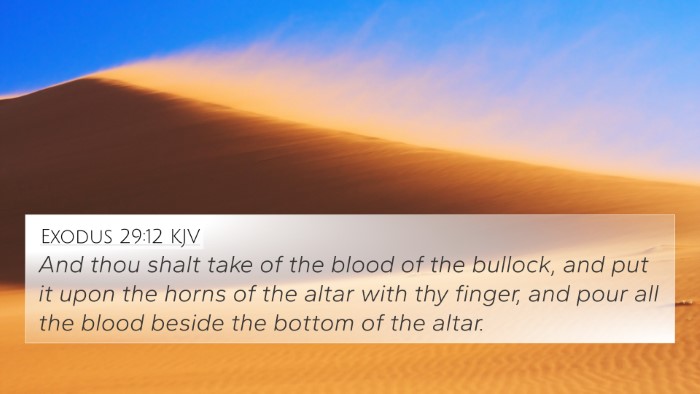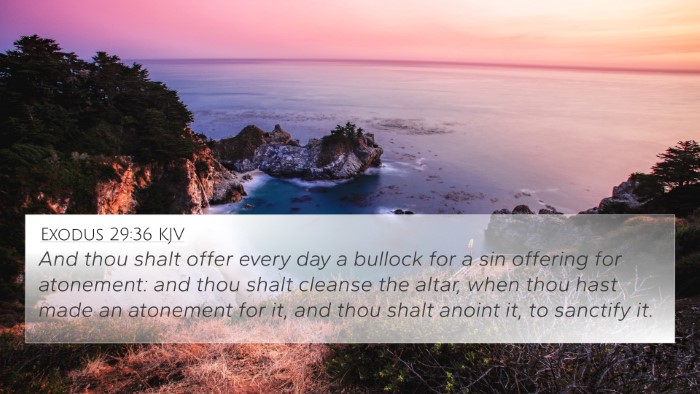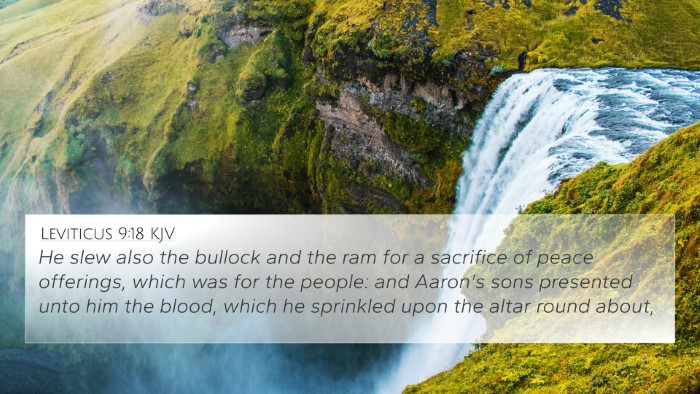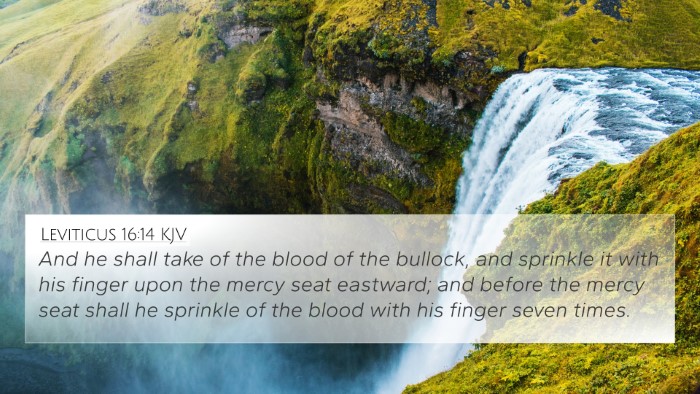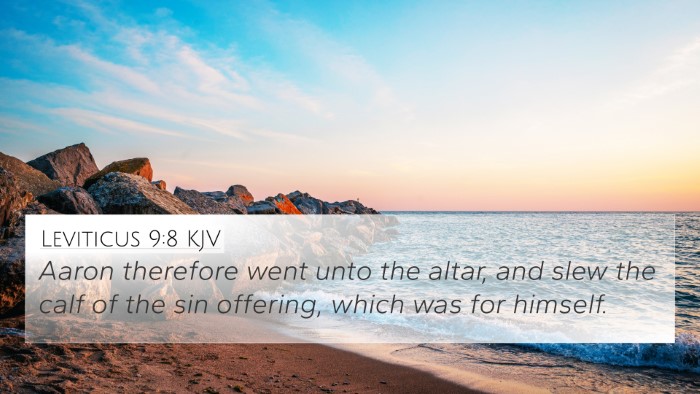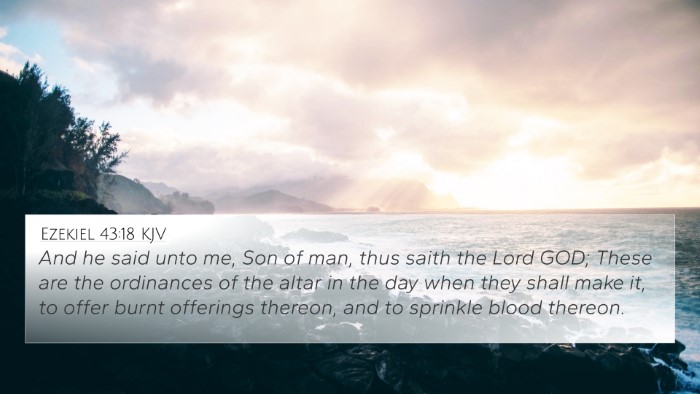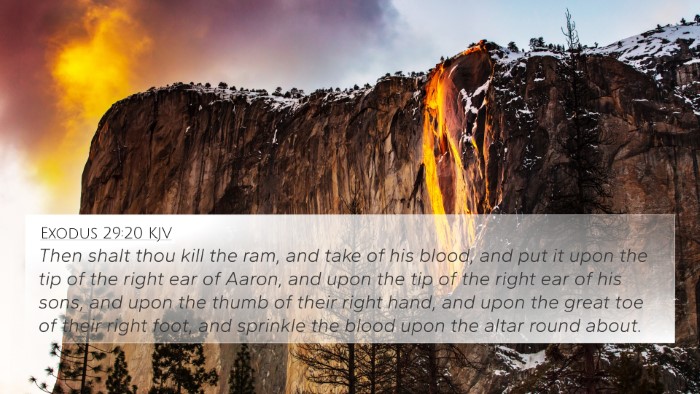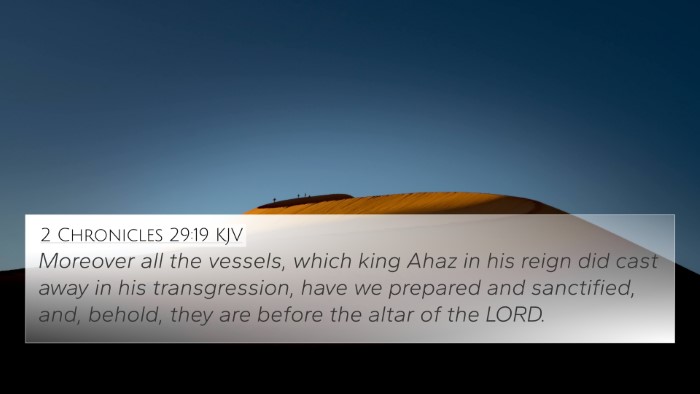Understanding Hebrews 9:21
Hebrews 9:21: "Moreover, he sprinkled with blood both the tabernacle, and all the vessels of the ministry."
Context and Summary
The book of Hebrews highlights the superiority of Christ's priesthood and sacrifice in comparison to the Levitical priesthood. In this particular verse, the writer emphasizes the significance of the blood in the sacrificial system. It draws attention to the ritual practices established in the Old Testament, specifically the sprinkling of blood on the tabernacle and its instruments, which serves to consecrate them for God’s sacred service.
Commentary Insights
- Matthew Henry: Henry explains that the act of sprinkling blood symbolizes purification and the establishment of the covenant between God and His people. He notes that this ritual points to the ultimate sacrifice of Christ, who sprinkles the hearts of believers with His blood for their redemption.
- Albert Barnes: Barnes comments on the significance of blood in ceremonies of worship in the Old Testament, indicating that such acts were foreshadowing the profound sacrifice of Jesus Christ. He establishes a connection between the sprinkling of the blood and the need for a holy mediator between God and humanity.
- Adam Clarke: Clarke provides details about the ceremonial law and its purpose, emphasizing that the bloodshed was essential not just for cleansing but for the remembrance of God’s covenant promises. He argues that this foreshadows the new covenant established through Christ’s sacrifice.
Connections with Other Scriptures
Hebrews 9:21 stands as an essential piece in the mosaic of biblical theology. The themes of sacrifice and covenant established here reverberate throughout the Scriptures. Below are notable cross-references:
- Exodus 24:8: "And Moses took the blood, and sprinkled it on the people, and said, Behold the blood of the covenant, which the LORD hath made with you concerning all these words." This shows the foundational role of blood in establishing God’s covenant with His people.
- Leviticus 16:14: "And he shall take of the blood of the bullock and sprinkle it with his finger upon the mercy seat eastward; and before the mercy seat shall he sprinkle of the blood with his finger seven times." This highlights the act of sprinkling blood in the Day of Atonement rituals.
- Hebrews 9:14: "How much more shall the blood of Christ, who through the eternal Spirit offered himself without spot to God, purge your conscience from dead works to serve the living God?" This verse connects the Levitical sacrifices to the ultimate sacrifice of Christ.
- Matthew 26:28: "For this is my blood of the new testament, which is shed for many for the remission of sins." This clearly identifies the notion of Jesus’ blood as pivotal in establishing the new covenant.
- 1 Peter 1:19: "But with the precious blood of Christ, as of a lamb without blemish and without spot." This reinforces the sacrificial imagery tied to the New Testament understanding of atonement.
- Romans 5:9: "Much more then, being now justified by his blood, we shall be saved from wrath through him." This indicates the salvific power of Jesus' sacrifice in contrast to the Old Covenant sacrifices.
- Revelation 1:5: "And from Jesus Christ, who is the faithful witness, and the first begotten of the dead, and the prince of the kings of the earth. Unto him that loved us, and washed us from our sins in his own blood." This celebrates the redemptive work carried out through Jesus’ blood.
Theological Themes
The theological implications of Hebrews 9:21 revolve around several key themes:
- Blood and Atonement: The verse underscores the integral role of blood for atonement and purification, both in the Old Testament and its fulfillment in Christ.
- Covenant Significance: The connection between blood and covenant points to an essential aspect of God's relationship with His people, emphasizing the gravity of sin and the necessity for reconciliation.
- Ritual vs. Reality: The rituals of the Old Covenant serve as shadows pointing to the reality found in Jesus, who perfects and completes the sacrificial system.
Practical Applications
Understanding Hebrews 9:21 and its context enriches our appreciation for Christ's sacrifice. Here are some practical implications for believers:
- Awareness of Sacrifice: Recognizing the cost of Christ's blood can deepen our gratitude for His grace.
- Living Under the New Covenant: Believers are called to live in the freedom of the new covenant, emphasizing a personal relationship with God through Christ.
- Encouraging Worship: The rituals of the Old Testament remind us of God's holiness, prompting a response of reverence in worship.
Conclusion
Hebrews 9:21 encapsulates complex theological themes that bridge the Old and New Testaments. By studying this verse and its connections with other scripture, believers can appreciate the comprehensive narrative of redemption through Jesus Christ. The act of cross-referencing within the Bible not only enriches understanding but also exemplifies the unity and continuity of God’s message throughout history.
